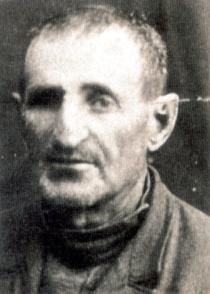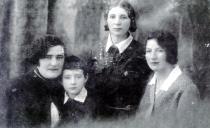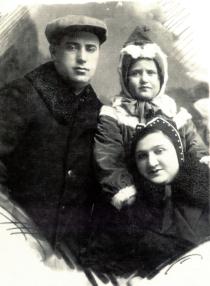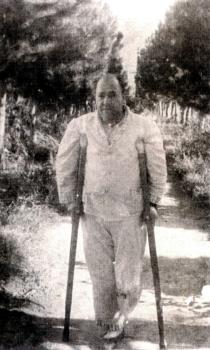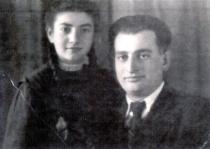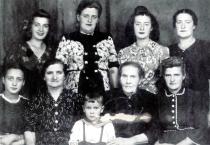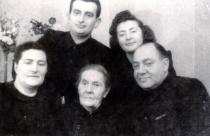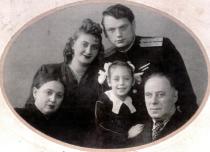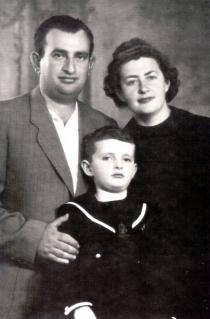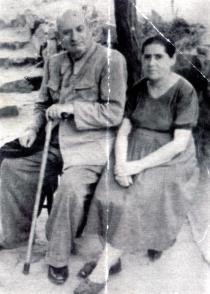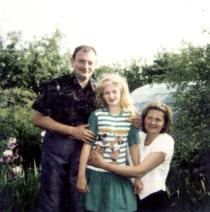This photo was taken in Zaporozhye in 1932 and sent to my grandmother and grandfather. It is signed: 'To my dear parents from their daughter Lisa and granddaughter Sima. 17th June 1932, Zapor'. Left to right: my mother Elizabeth Gurevich, me, my mother's friend and her daughter. When this photo was taken, we were living in Zaporozhye in the residential area of the military unit. From Zaporozhye we moved to Kiev.
I was born in 1926. I was the only child in the family. My parents moved from one town to another and they decided to have no more children. My mother was a housewife. Soon after I was born we moved to another location where my father got a job assignment. I spent my childhood in the military residential camps in Shepetovka and Korosten. We lived in the barracks, which had many small rooms where the officers' families resided. There was a common toilet and kitchen with a few primus stoves. The majority of soldiers and officers were Russian. Our surroundings didn't allow a traditional Jewish way of life. When I grew up, my mother told me about her childhood and life in Polonnoye and about the Jewish traditions in their family. We all believed that her parents were retrogrades to observe all this religious 'nonsense'. My mother was a typical Soviet woman and she didn't feel upset about not observing any Jewish traditions. We spoke Russian in our family and I had Russian friends.
In 1932 there was a big famine in Ukraine. I saw starving, exhausted people. But since my father was a military, our family received good provisions. In 1933 my father got a job assignment in Kiev. We lived in an apartment in the center of the city. I went to the Russian secondary school in Kiev when I turned 8. I studied well. I was an industrious girl. I became a Young Octobrist, then a pioneer and a Komsomol member.

